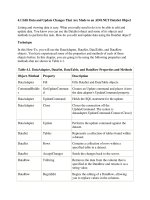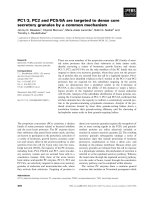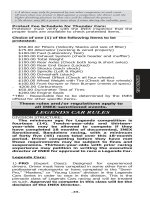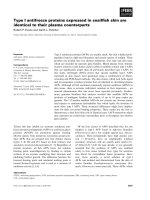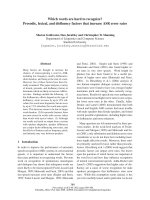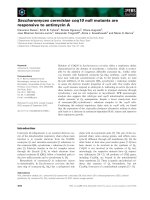are celebrities to blame
Bạn đang xem bản rút gọn của tài liệu. Xem và tải ngay bản đầy đủ của tài liệu tại đây (33.41 KB, 1 trang )
"When you see your idols having gorgeous skin, perky breasts and slender thighs, isn't it almost
impossible to look at your body and believe its perfect just the way it is." Mr Dickins and class an
article taken form the April edition of 'Girlfriend' magazine argues just that.
This article uses the contentions of a well experienced plastic surgeon, to help support this
argument. Dr Alfred Lewis, president of the Australian Society of Plastic Surgeons states "I
believe the number of teens having plastic surgery has increased because they're being bombarded
every minute of their waking hours with information from television, magazines, and radio about
what is considered as attractive." Although this argument may sound extreme, fairly generalised
and is a great example of a subjective argument, it is very strong as it is an opinion coming from a
well experienced professional. However, when one really contemplates on his words, it is hard to
prove him wrong. Teenagers are constantly surrounded by ideas of what's considered to be
attractive and it is extremely difficult to escape the powerful grasp of the media.
This article also uses examples of emotive language, such as the words "I used to pray my boobs
would get bigger" arouses our emotions and helps us empathise with her situation, although this
can be considered as a weak point in most cases, in this article emotive language is a powerful
technique used to persuade the target audience, to spice up the article, add a little flavour to it.
This doesn't however necessarily make it a good argument, but it does make it very effective.
This article occasionally uses sharp, direct arguments to get straight to the point, for example "a
bag of silicon or saline does not guarantee confidence, greater self-esteem or success." Which is a
skilful technique as it gets the message across to teenagers openly.
Dr Lewis also believes that part of the problem with the media is that we only see good-looking
reading the news and adverting clothes. This argument implies that to be famous and successful
you must be physically appealing. Jenna Franklin, a teenager is quoted "Every other person you
see on TV has implants. If I want to be successful I need to have them to." This evidence is in full
agreement with Dr Lewis' views.
This article is also supported by visual evidence providing a picture of Dannii Minogue. Just look
at her! She's absolutely flawless, great skin, deep eyes, nice curves, this enough to make me have
plastic surgery; but that's not even the bad part, Dannii has confessed to boosting her breasts and
has openly told the press how much she loves them, which in turn influences teens to go through
with it.
The strongest component that this argument has used is the addition of true examples. This forces
the reader to believe, as there is real-life evidence of cases where teenagers have resorted to
surgery thus making the article more personal. The article is comprised of a few of Dr Hodgkinson
recent jobs. He completed a $20,000 operation 'refining the whole figure of a 17-year-old girl, a
nose job on an 18-year-old-girl, and liposuction on a 15-year-old girl.
This article demonstrates the use of sound arguments through using techniques such as the 'cause
and effect' method, the media is the cause, teenagers getting plastic surgery is the effect it has.
There is also the use of emotive language, quotes, objective analysis, expert opinion and real-life
cases, and the use of both visual and scientific evidence.
Overall this article powerfully argues that media through all its mediums pushes teenagers to take
that extra step to have surgery and that celebrities play a major role in the decisions the youth
make.


